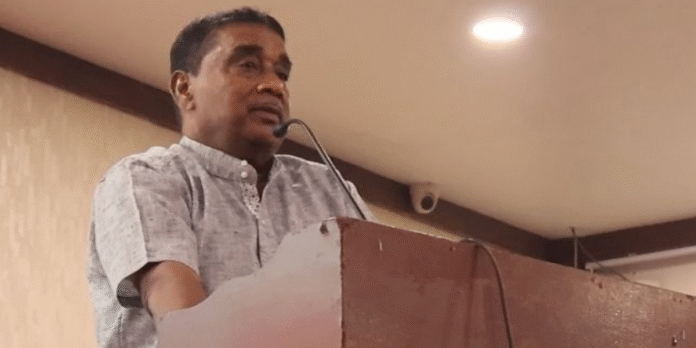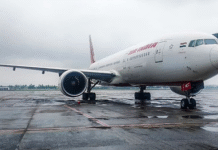The Chairman of the Campaign Committee of the Andaman and Nicobar Territorial Congress Committee (ANTCC), TSG Bhasker, has written to the Chief Secretary of the A&N Administration highlighting a series of pressing issues ranging from traffic congestion in Sri Vijaya Puram to education gaps and long-standing challenges faced by the tribal population of Car Nicobar.
Raising concern over worsening traffic between the Airport entry point and the Garacharma District Hospital, Bhasker said that congestion has become severe during peak hours with school buses, airport-bound traffic, and commercial vehicles from the Bathubasti market all converging on the narrow stretch. He warned that frequent jams are delaying ambulances and essential services, affecting timely medical care. To ease the burden, Bhasker suggested immediate widening of the road where possible, exploring flyover options in bottlenecked areas, and removing abandoned vehicles obstructing movement. He also questioned the recent boundary wall built by the Airport Authority along the route, which he believes has further restricted traffic flow.
Apart from infrastructure concerns in Sri Vijaya Puram, Bhasker also flagged the persistent underutilization of quota seats reserved for A&N students in Pondicherry Central University and other affiliated institutions. He pointed out that several professional courses, including engineering, medical, law, and veterinary sciences, see vacancies each year due to lack of awareness and late withdrawals. He expressed particular concern about veterinary seats, citing the shortage of veterinary doctors in the islands. Bhasker urged the administration to create a proactive system of outreach, counseling, and coordination with colleges to ensure that island students do not miss out on these reserved opportunities.
Turning his attention to Car Nicobar, Bhasker raised a list of long-standing grievances affecting the tribal population. He said that incomplete sea wall construction near Mus Jetty has led to soil erosion and reduced draft, making vessel operations unsafe. The island’s roads, already strained by heavy defense traffic, continue to deteriorate. Bhasker recommended building a temporary jetty on alternative land to reduce pressure on existing infrastructure and ensure smoother cargo handling. He also called for urgent upgrades at Mus Jetty and highlighted unmaintained septic tanks in post-tsunami shelters, which pose health hazards.
Fuel shortages were another major concern flagged by Bhasker. He said irregular shipping services have led to frequent scarcity of LPG, petrol, and diesel. With vessels like MV Sentinel in poor condition, he suggested deploying more reliable ships such as MV Nalanda and MV Sindhu on crucial routes connecting Kalighat, Car Nicobar, and Campbell Bay.
Education access for Nicobari students, according to Bhasker, is hampered by tribal pass restrictions that make it difficult for parents to interact with Jawahar Navodaya Vidyalaya staff. He recommended a liaison mechanism to ease communication. On accommodation, he noted the shortage of government quarters on the island, with many employees forced to share inadequate housing. This, he said, discourages staff from accepting postings.
Bhasker also highlighted the declining condition of the BJR Hospital in Car Nicobar, citing the lack of equipment, specialist doctors, and diagnostic services. He said the absence of X-ray and ultrasound facilities has left the tribal community without access to essential healthcare.
Concluding his appeal, Bhasker urged the Chief Secretary to personally intervene, stressing that delays in addressing these issues erode governance and undermine the welfare of islanders. He said that timely administrative action is vital not just for easing urban problems in Sri Vijaya Puram but also for safeguarding the rights and dignity of tribal communities in Car Nicobar.





